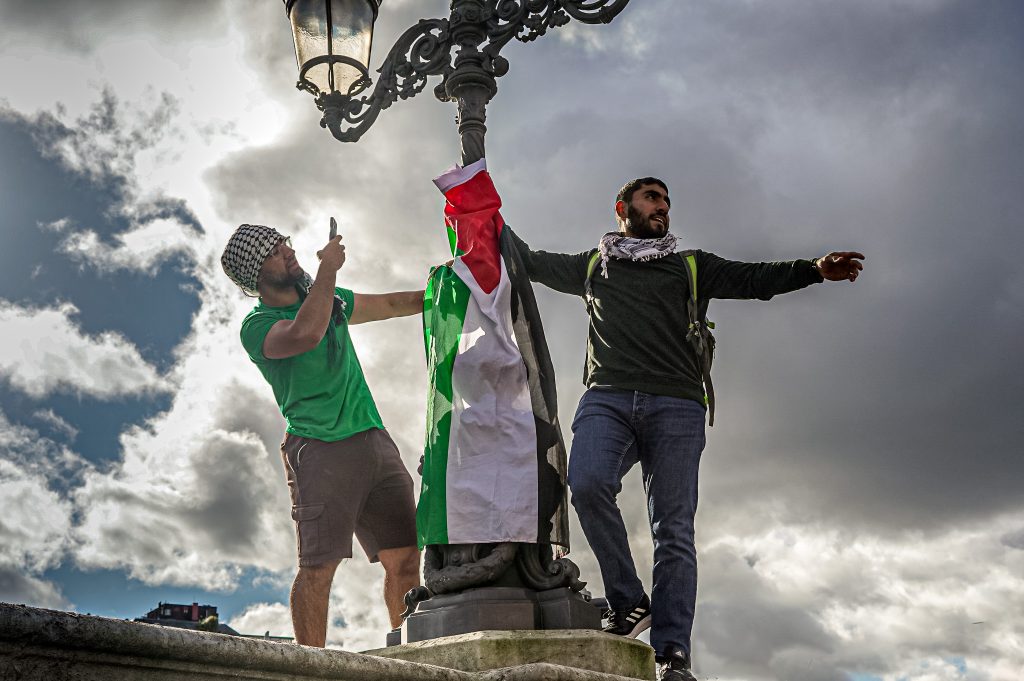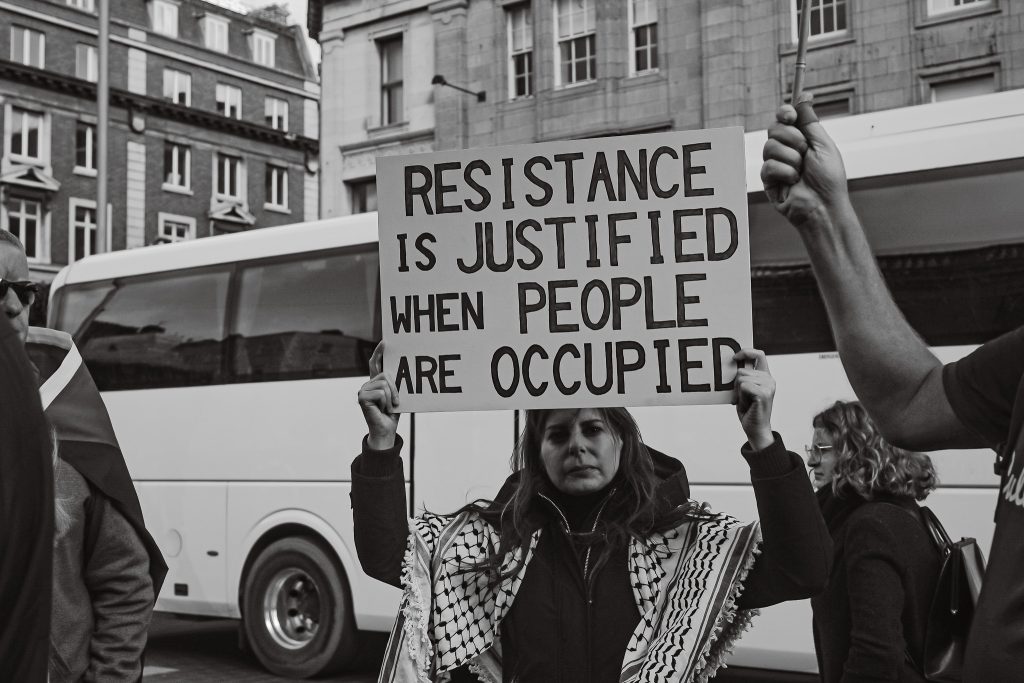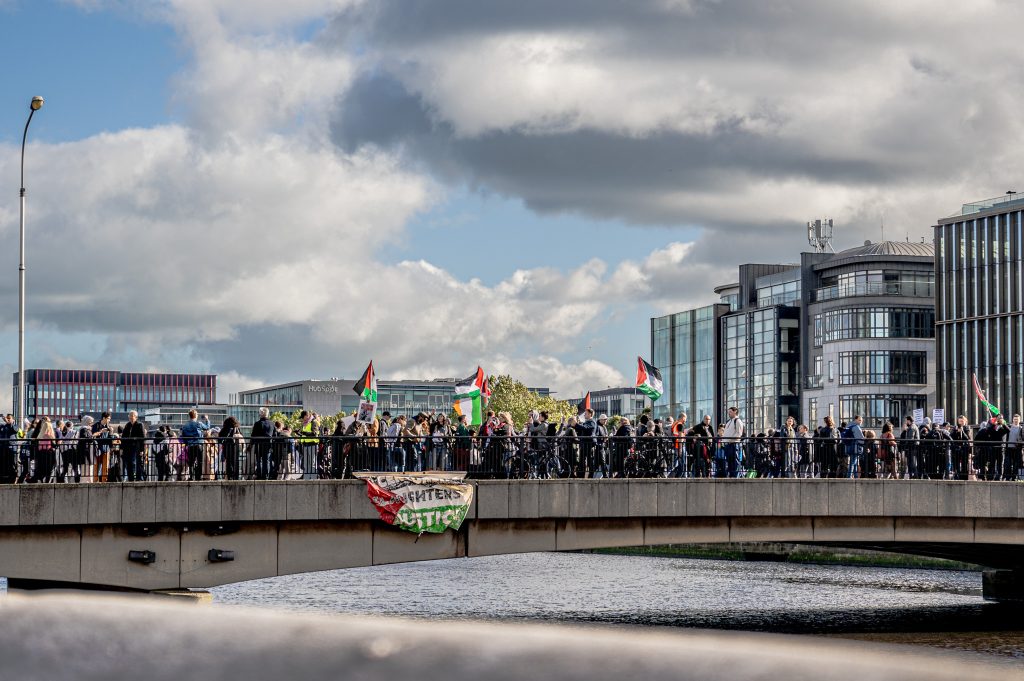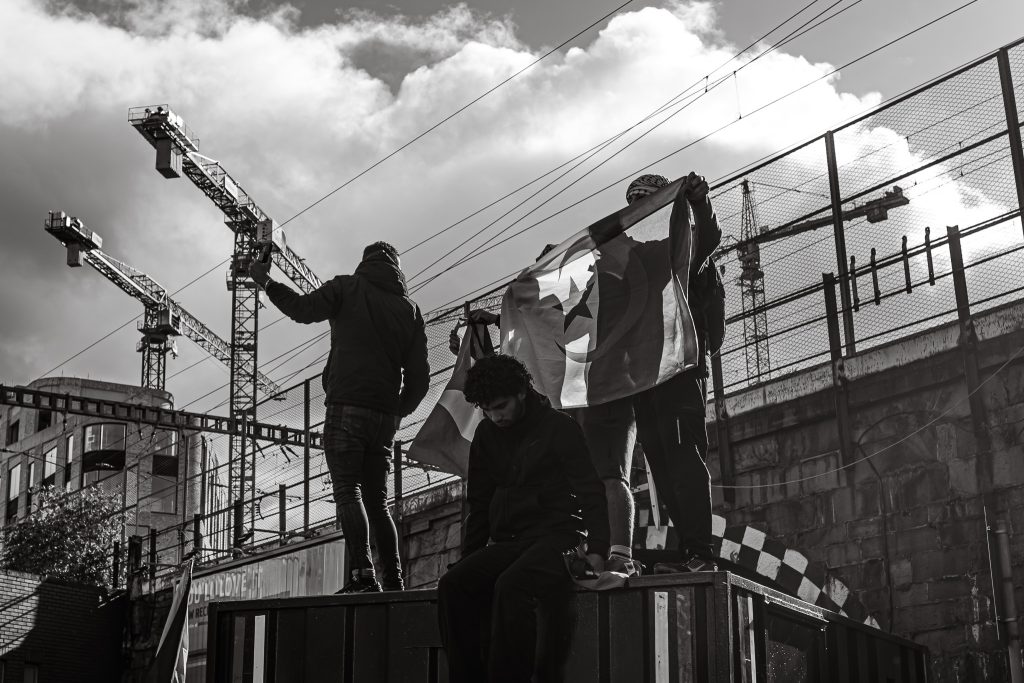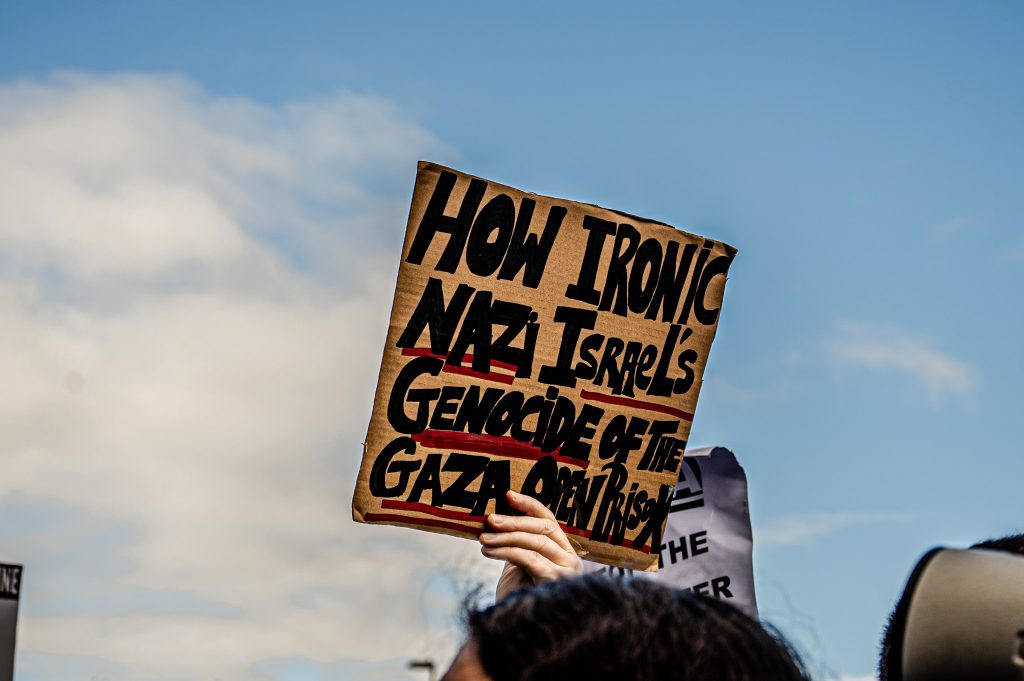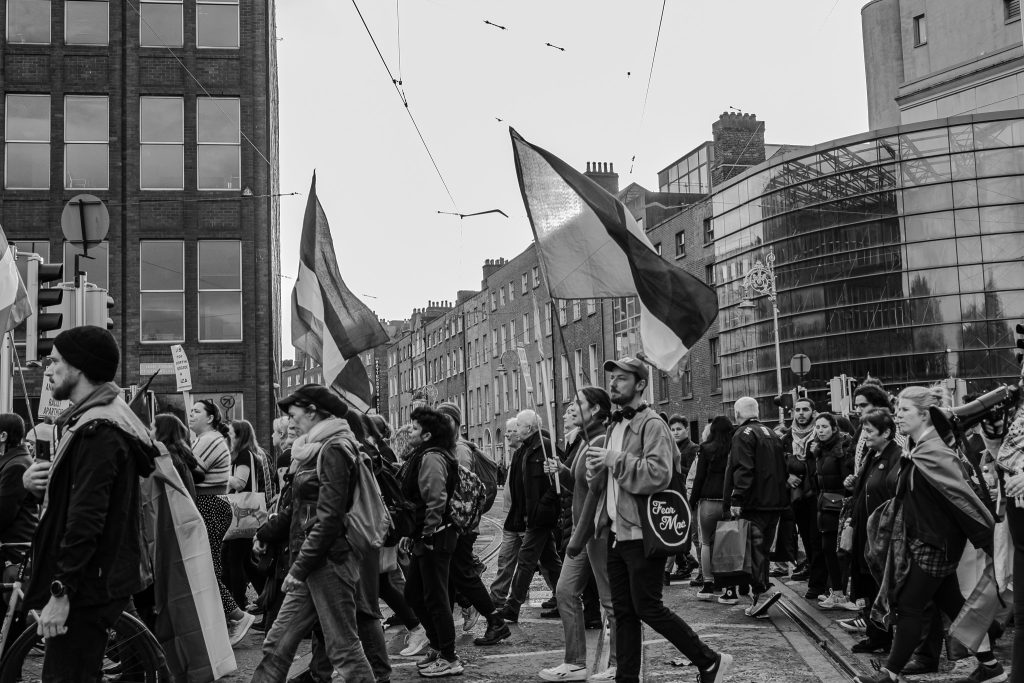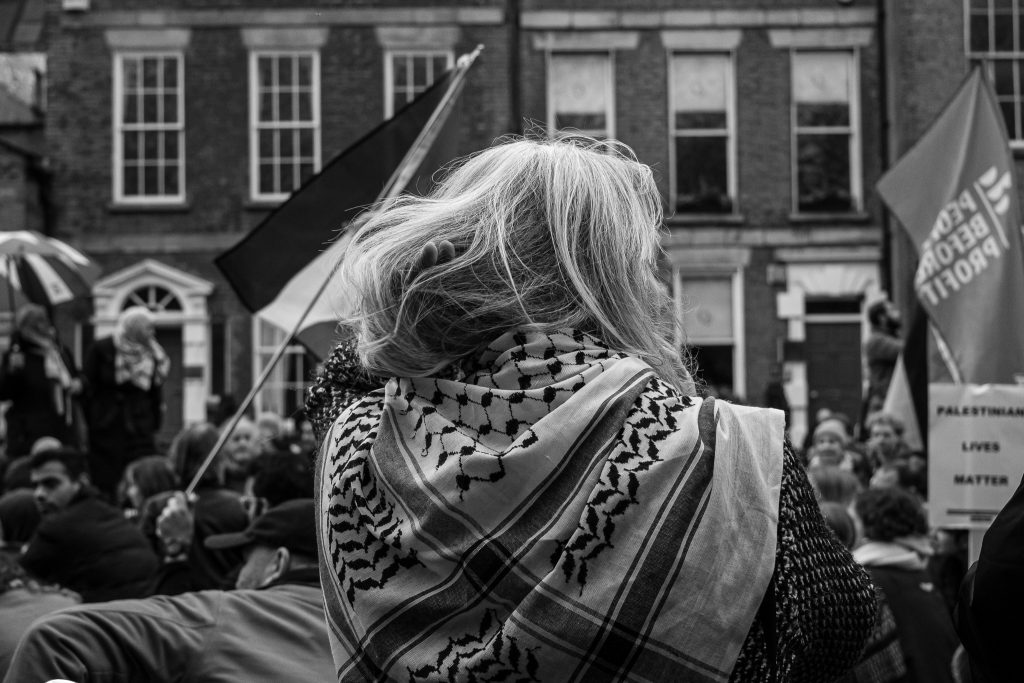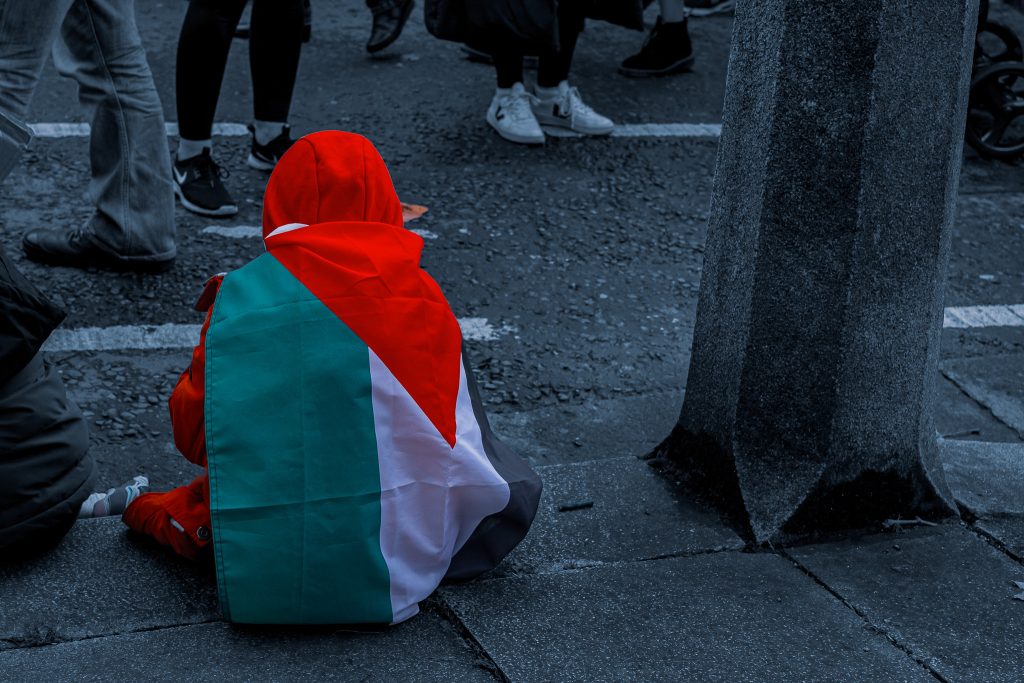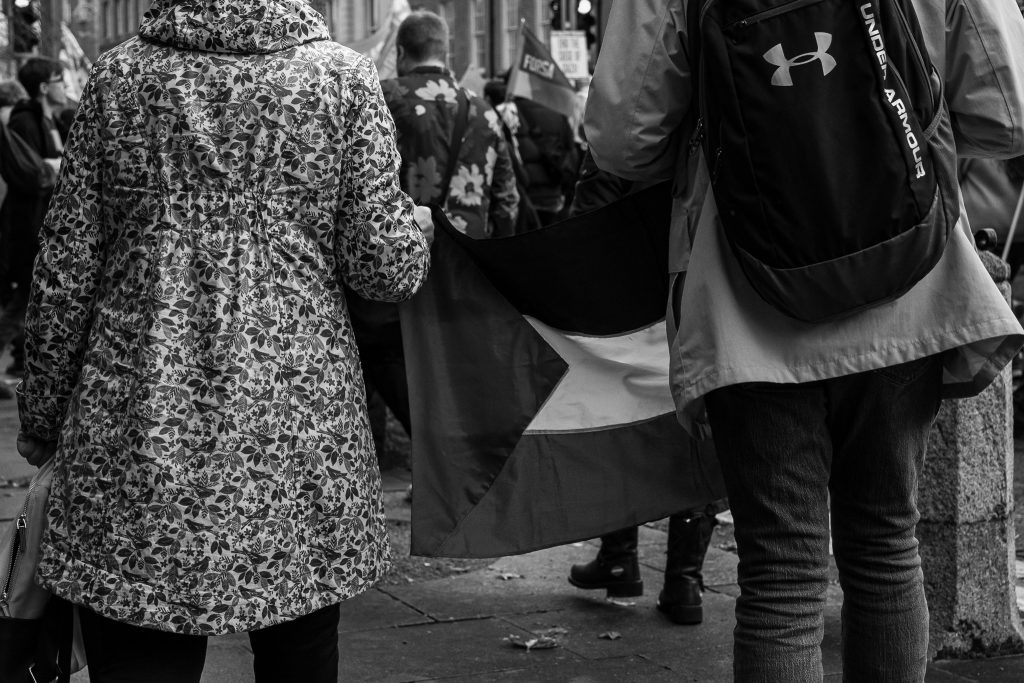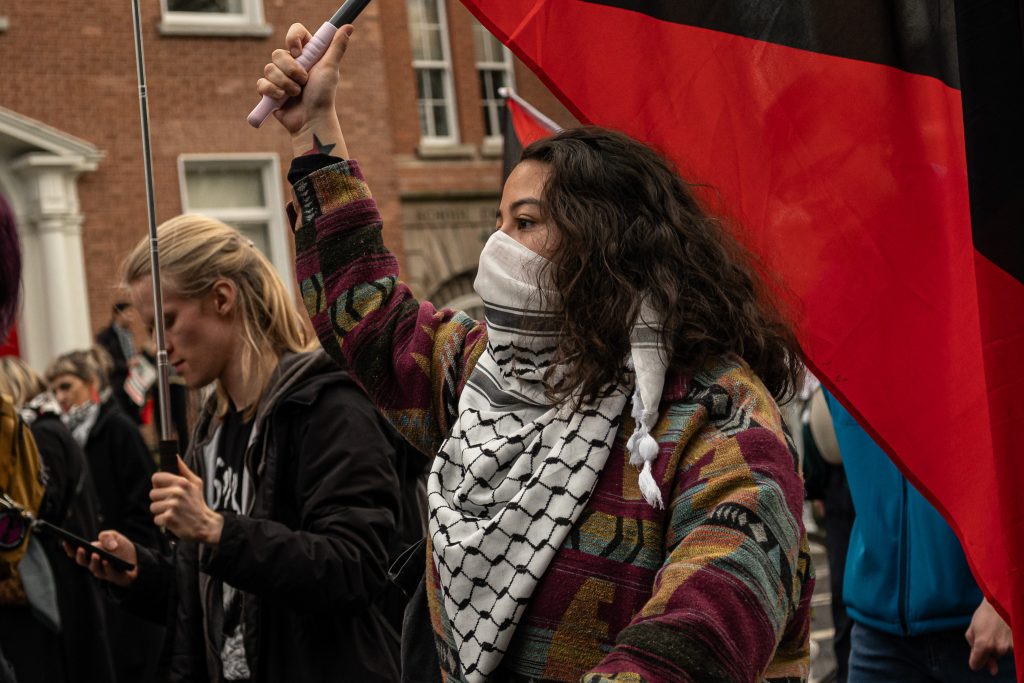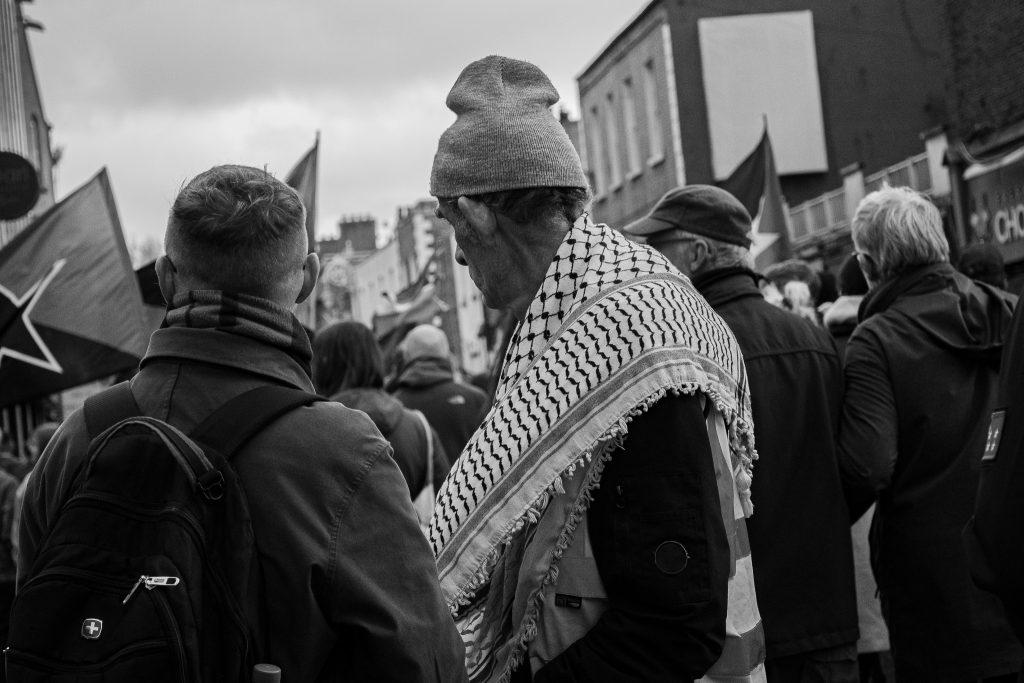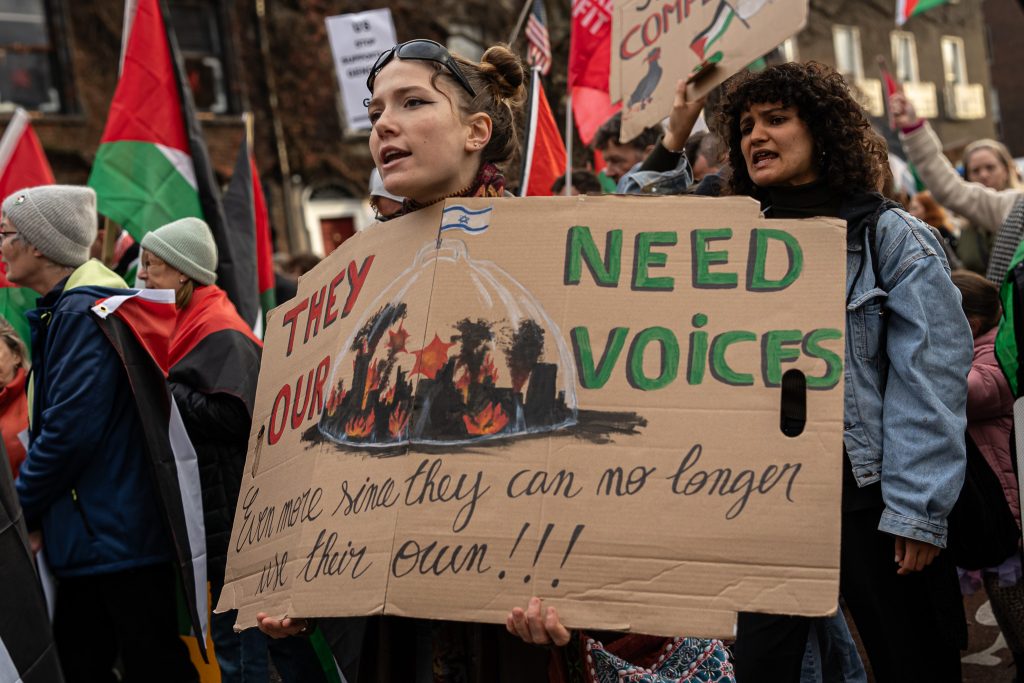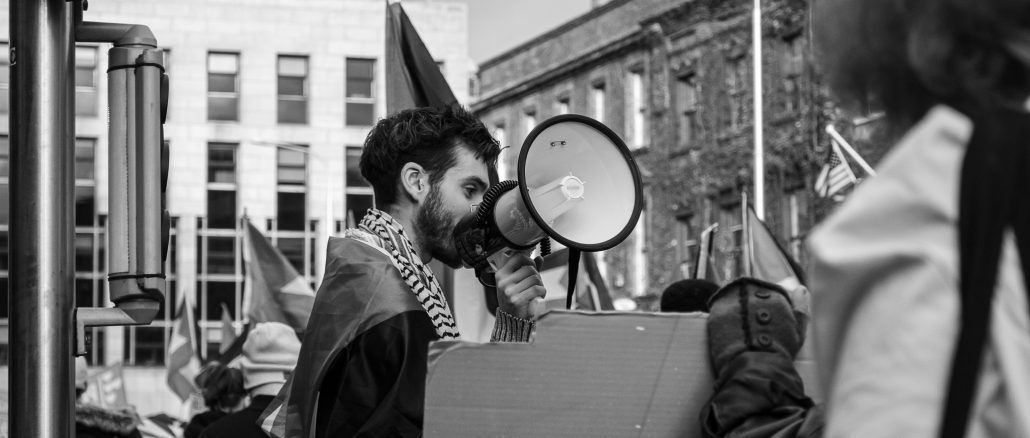
Protests serve as the pulse of a society, beating to the rhythm of outrage and the demand for justice. In the country I once called home, marching for change was treated as a rebellious act, a supposed criminal offence to speak up for the truth. It’s ironic to live in the same world with those proclaiming to “save and protect,” yet barricade them during a call for ceasefire.
The echoes of the past resonate with the global protests of 2023, where crowds unite, demanding an urgent call for ceasefire and echoing cry to “Free Palestine.” This collective outcry untangles the struggle against injustices. It prompts me to question the grounds behind the police clash against the protesters in my homeland last November 2023, as well as the constant heavy bombardment to the Palestinian land: who is defending who?
Israeli forces claims whenever someone throws them the idea of having a ceasefire is the phrase: “Israel has the right to defend itself.” But from whom? From the millions of injured and displaced Palestinians? From the kids marking their limbs with their names to make sure they will be found in case of another bombing? From the nurses, and doctors risking to save lives only to be victims of bombing themselves? From the journalists keeping the truth alive, yet threatened to be silenced by bombs?
Protests, at their core, happen when the stench of injustice runs through every corner of the society. They are a collective voice raised in the hope of effecting change, a testament to the power of unified resistance. My understanding of protests has evolved over time, it was once branded as “rebellion” to my young mind, seemingly saying that protesting is such a “disrespectful attitude.” The act of resisting is usually deemed as “bad influence” on the youth – this type of an mindset not only exists in my country, but one that persists in the present, targeting the young vocal generation of today.
However, that ideology appears short-lived in my mind, as people not only in my country, but all around the world are becoming more aware of global injustices. The collective memory of a nation overthrowing a dictator such as the Philippine EDSA People Power Movement in 1986, serves as a poignant reminder that societal evolution requires constant battle against oppression.
Call it whatever you want. But the scent of “rebellion,” now emerges as the fragrance of resilience against oppression. The youth, once discouraged from embracing the spirit of protest, are now at the forefront, challenging the norms and raising questions against the narratives spoon-fed to them.
For example, because of the rise of TikTok more and more information is being publicised and questioned. The video goes like this, an Israeli military officer, claimed that Hamas allegedly kept their hostages at Al-Rantisi Children’s Hospital in Gaza and on the wall pasted the names of the Hamas’ members. However, it has been debunked as the days on the calendar written in Arabic.
In the occupied territories of Palestine, the struggle for justice encapsulates a microcosm of the broader fight against years of systematic apartheid, ethnic cleansing and genocide. The protests reverberating through the streets are not acts of rebellion, but rather they are the symphony of a generation unwilling to accept silence as consent. The world must recognise, hear, and understand that Palestinian journalists, doctors and civilians that were killed and dehumanised under the occupation.
As we navigate why protests exist, it’s imperative to redefine them not as acts of terrorism, but as symbols of hope, courage, and a collective desire to call for justice, whether on the streets of my home country or the occupied territories of Palestine. The recent protests define the unwavering human spirit yearning an end to war crimes and hold the oppression accountable.
In the face of adversity, protests stand as a beacon, illuminating the path toward a society that values ceasefire over war crimes, freedom over apartheid, and presence over silence. The youth, once deemed “bad influence” to younger generations, now emerge as the architects of change, challenging governments, fighting against historical revisionism and reshaping the narrative through speaking up and protesting.
As a Filipino, it is disappointing to see that police forces in the Philippines clashes against protesters. It should already be a lesson to the Philippines that historically, we too were colonised for years. Isn’t that enough to cut ties with Israel?
The experience of living in a country where two million people ousted a dictator and ended a 20-year dictatorship in 1986, as well as living in Ireland, a country having the loudest solidarity with the Palestinians, has taught me that: Justice must not be silenced. Injustice must not be forgotten and the Philippines must learn from that.
Photo Gallery Caption: Dublin, 2023. The Irish Palestine Solidarity Campaign (IPSC) organised a crowd of thousands in Dublin to express their support for the Palestine. (Images: Hannah Giron Daygo)
Editor-in-Chief, Hannah Giron Daygo

